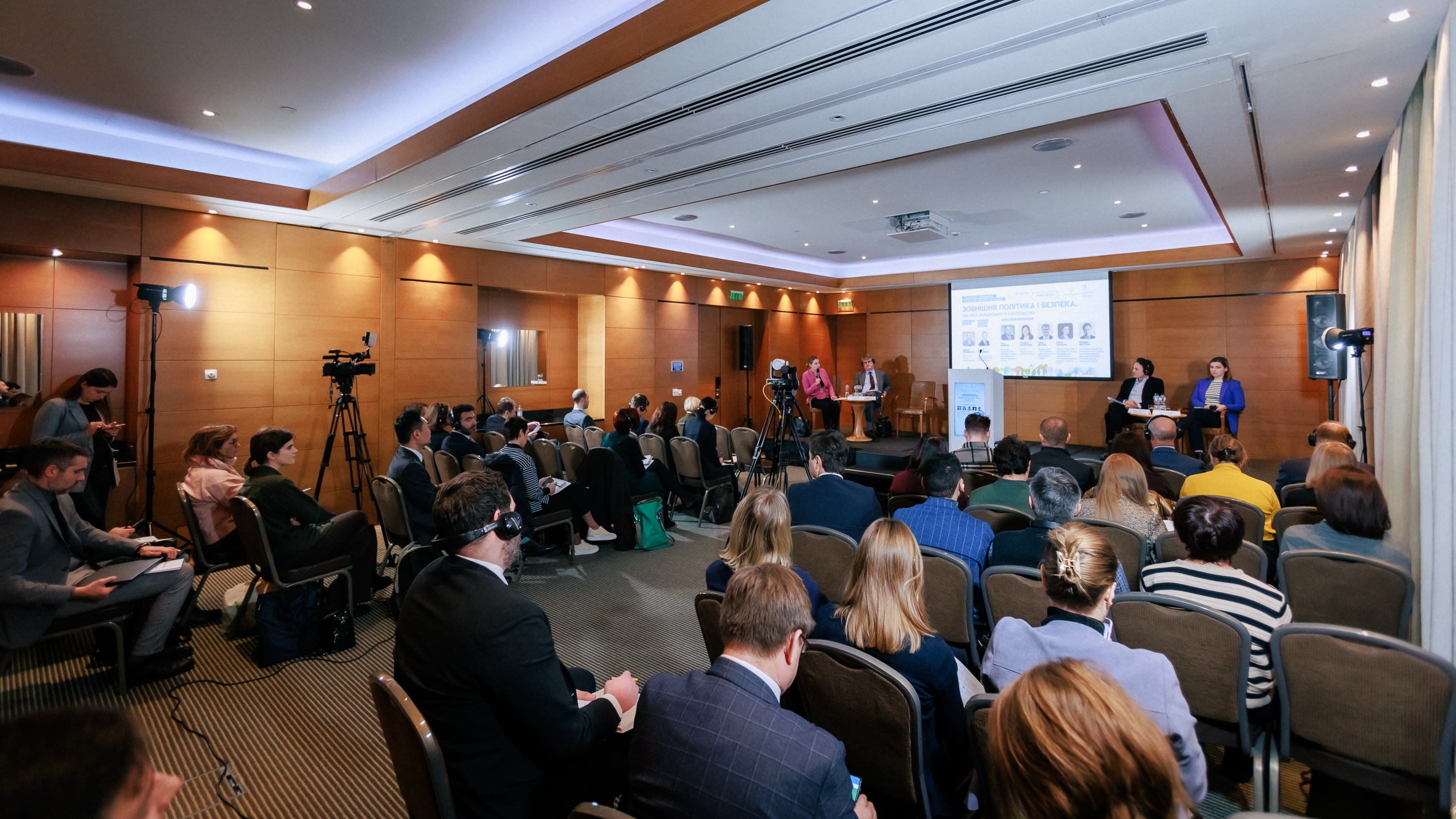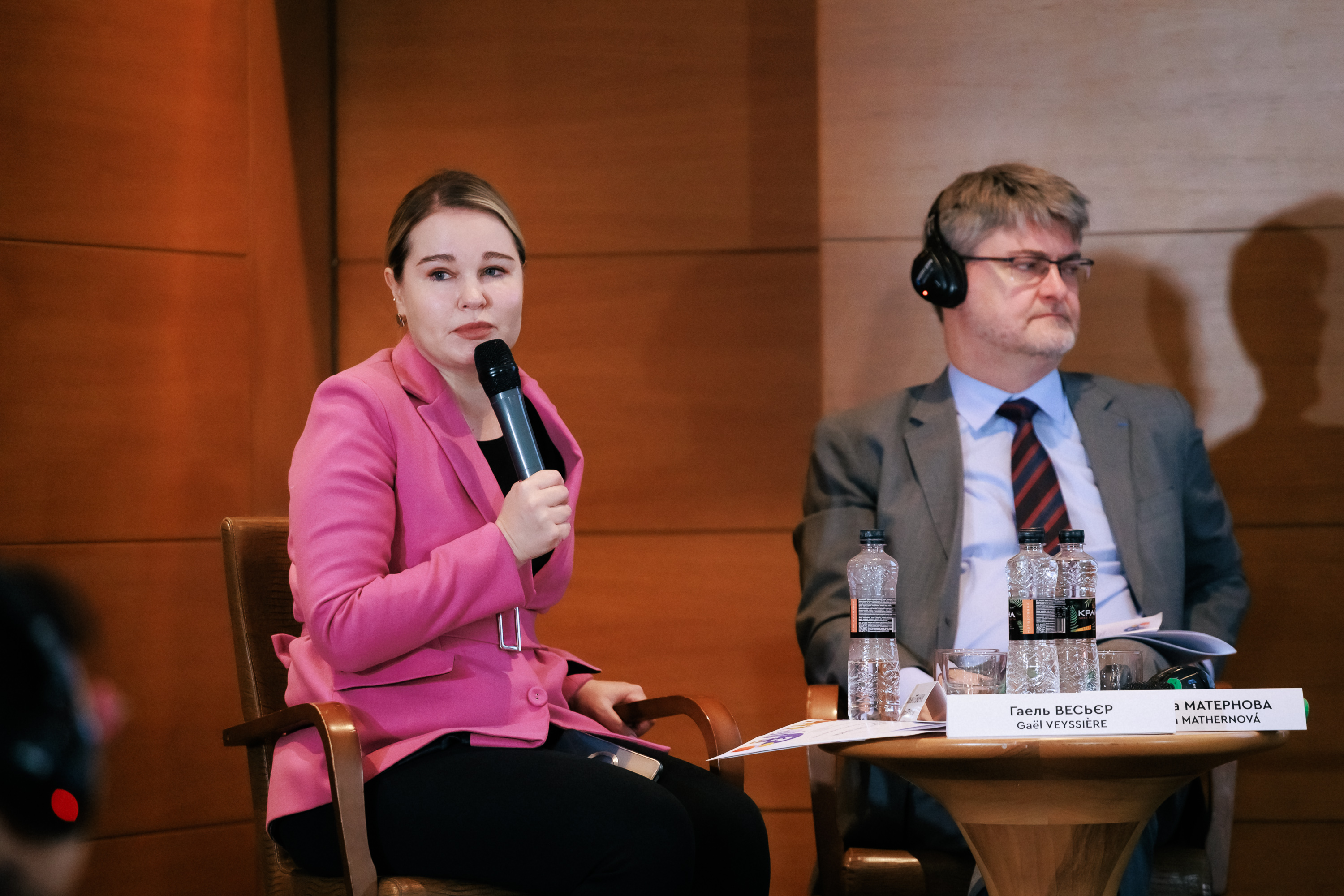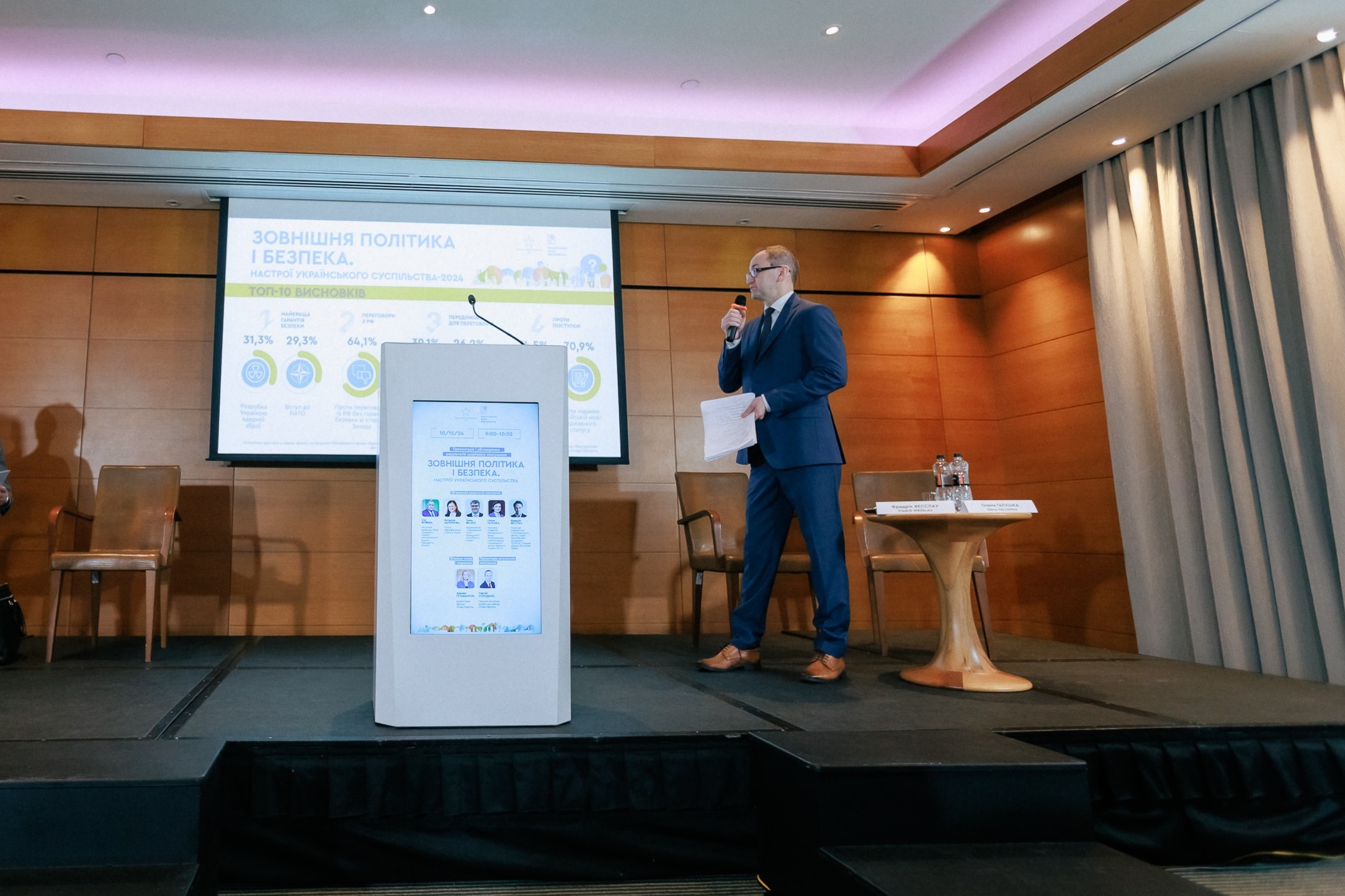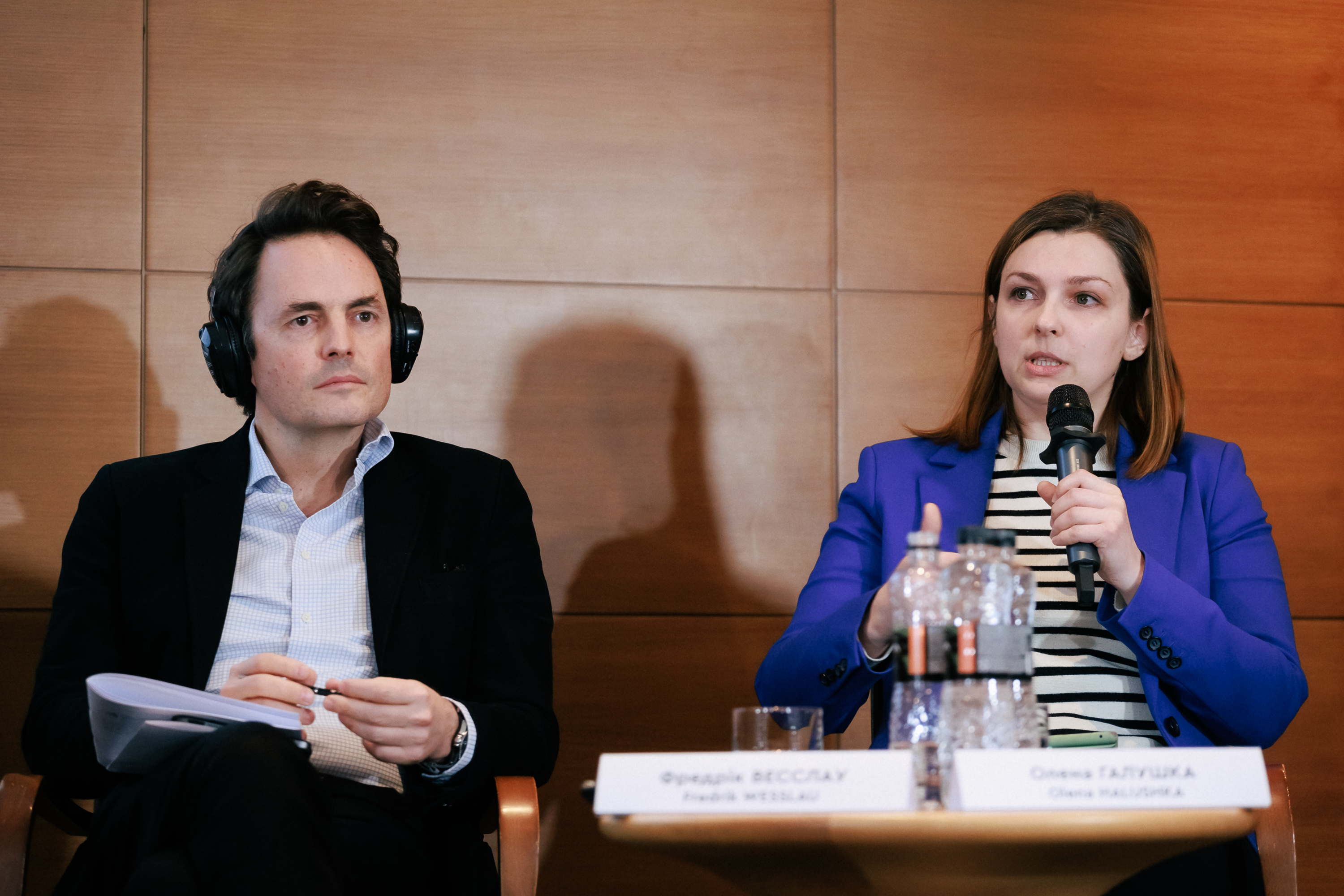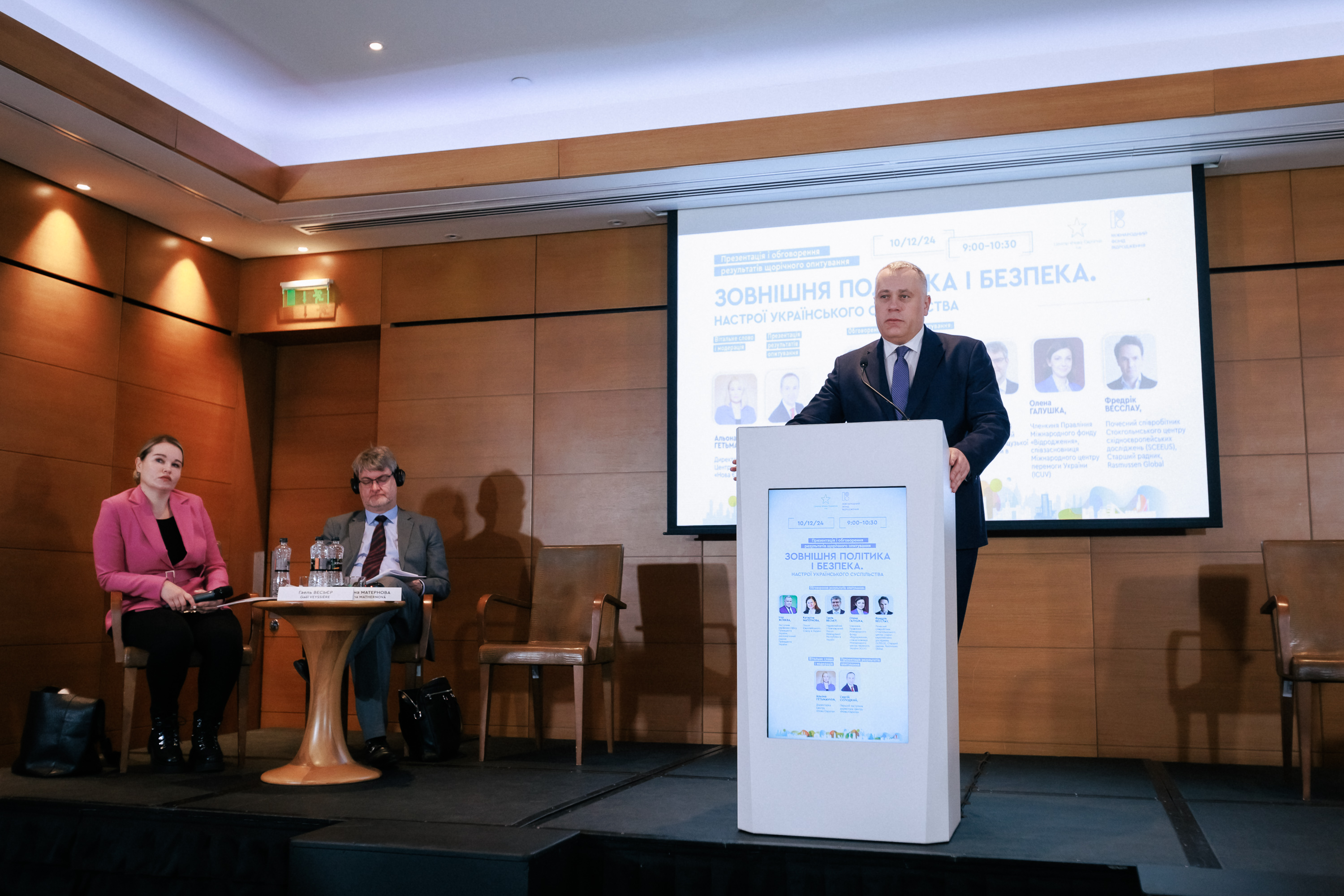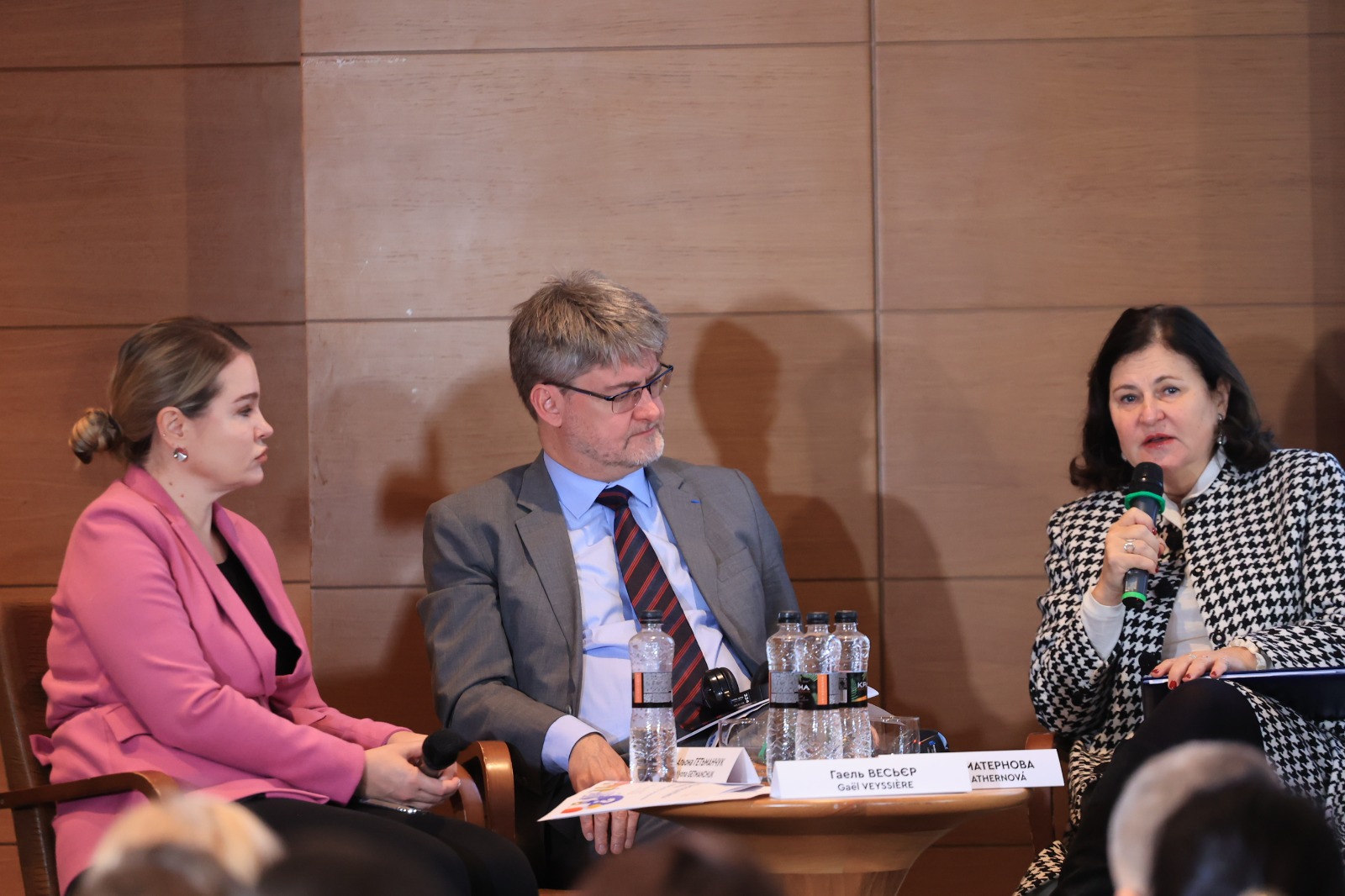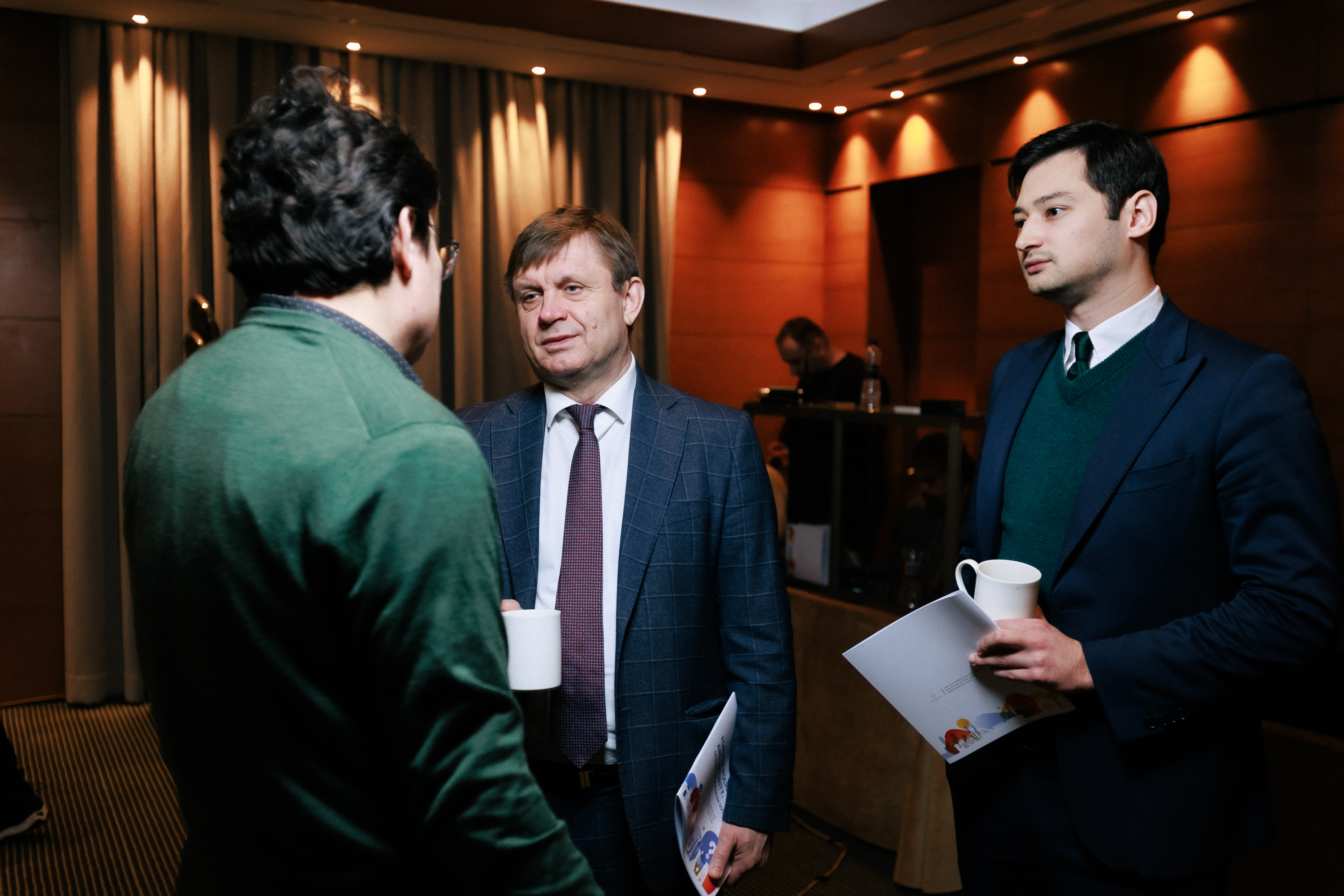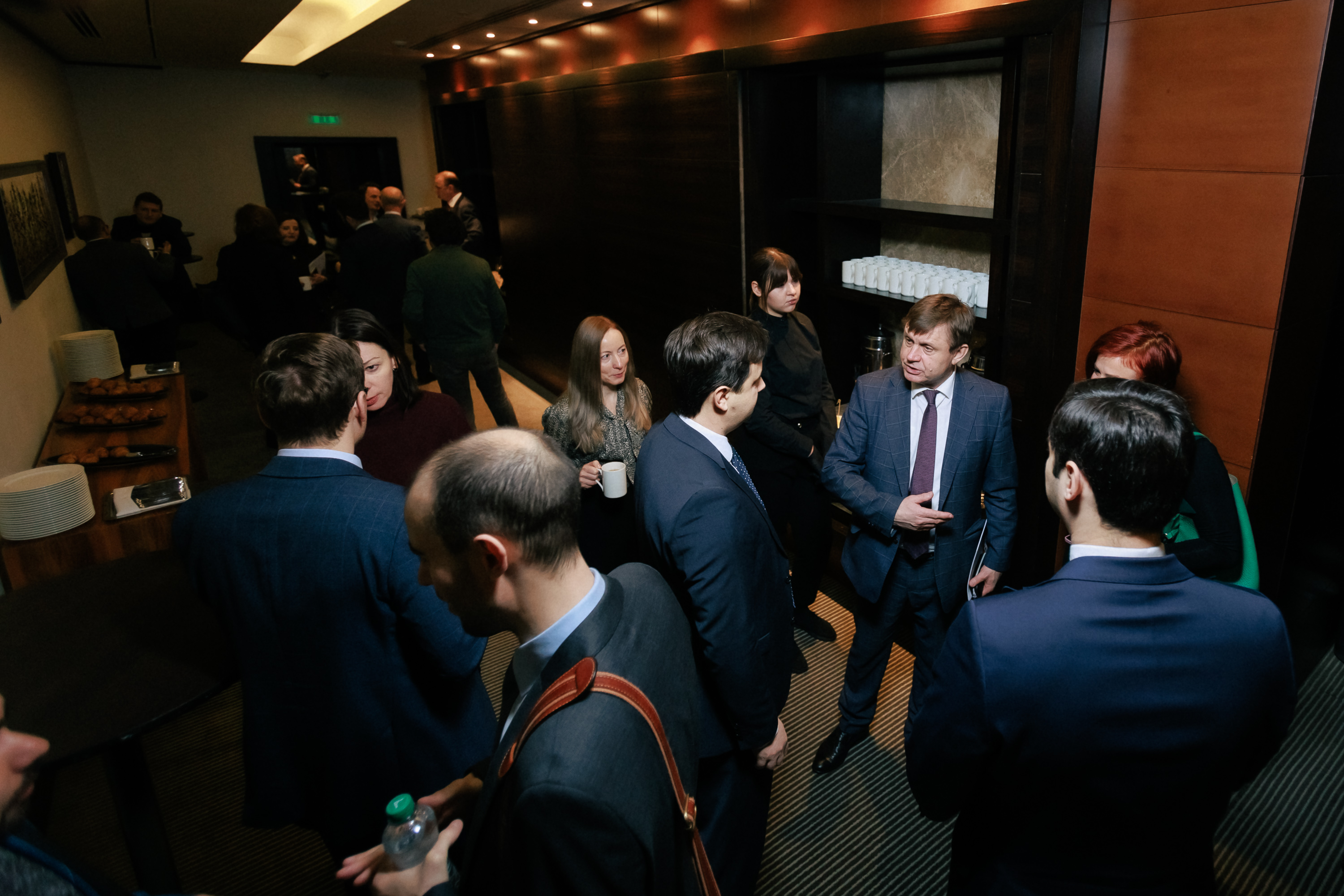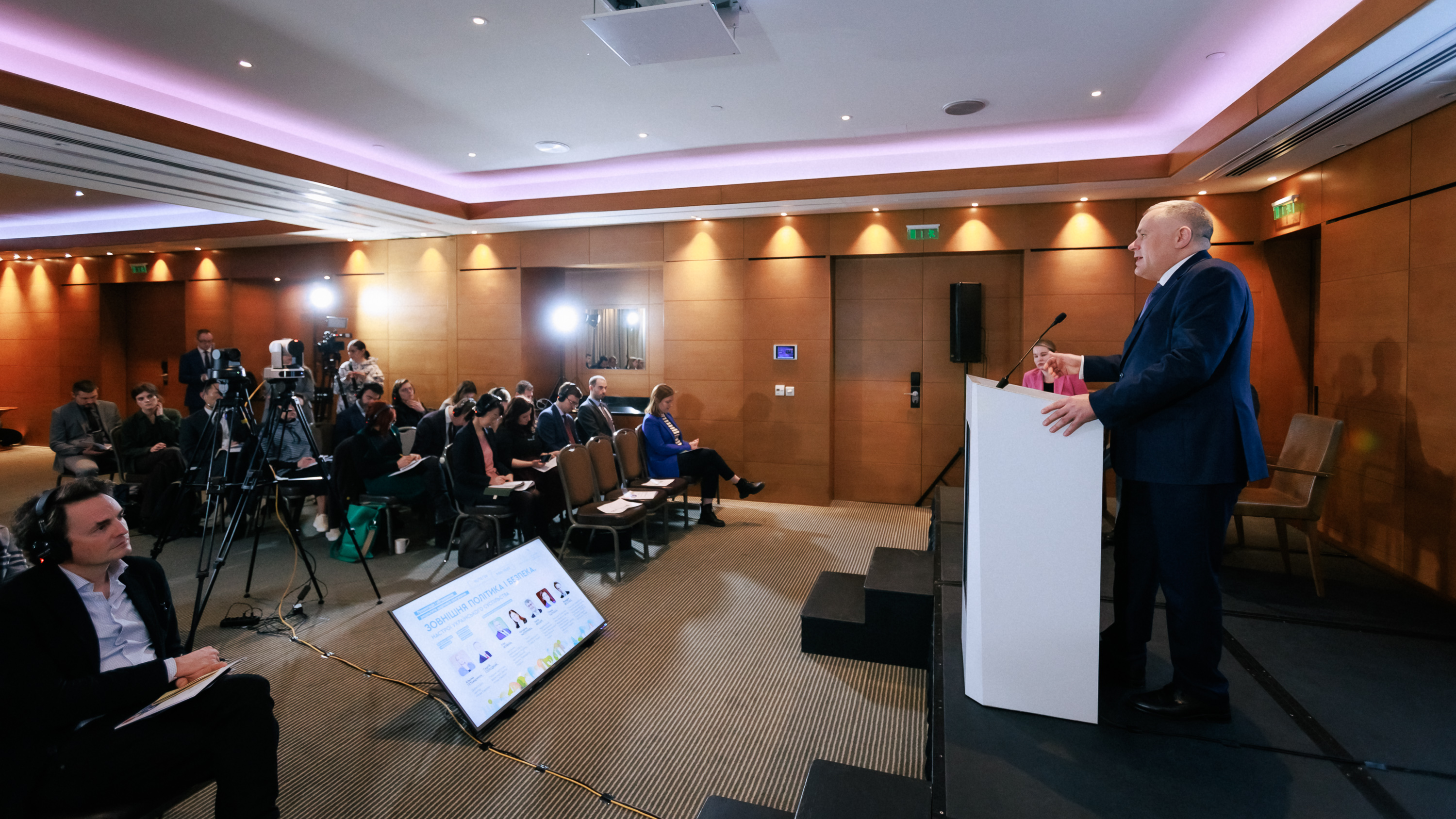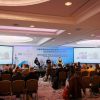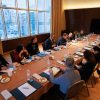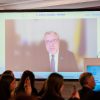On December 10, New Europe Center organized presentation of the results of opinion poll “Foreign Policy and Security: Opinions of Ukrainian Society”. The event was attended by representatives of the diplomatic, expert and media environment.
Key findings of the opinion poll:
- 70.3% of Ukrainians support the idea of Ukraine’s gradual accession to the Alliance, meaning when NATO invites Ukraine within its internationally recognised borders (with Article 5 of the Washington Treaty applying to the entire state, except for the temporarily occupied territories).
- Best security guarantees – nuclear weapons and NATO. Ukrainians surveyed are almost equally likely to consider the development of nuclear weapons by the state (31.3%) and gradual accession to NATO (29.3%) to be the best guarantees of Ukraine’s security.
- No concessions to the aggressor in possible negotiations: 74.5% do not consider reducing the army of Ukraine, 70.9% consider it unacceptable to give the Russian language state status, 53.2% of Ukrainians do not allow a temporary refusal to recapture the occupied territories, 50.7% will not refuse to join the EU, for 48.7% unacceptable refusal to join NATO.
- Most Ukrainians trust the President of the European Commission Ursula von der Leyen (65%), President of Poland Andrzej Duda (64.6%), Prime Minister of Canada Justin Trudeau (59.9%).
- For the second year in a row, trust to French President Emmanuel Macron is growing – 58.4% (it was 54.5%).
- Most Ukrainians do not trust the head of Russia Vladimir Putin (95.9%), 91.4% – the self-proclaimed President of Belarus Alexander Lukashenko and 84.6% – the President of China Xi Jinping.
The detailed results of opinion poll are available on New Europe Center site.
The opinion poll covered a broad range of foreign policy and security issues: security guarantees for Ukraine, formats of NATO accession, EU accession, preconditions for potential negotiations to end the war, levels of trust in foreign institutions and leaders, and more.
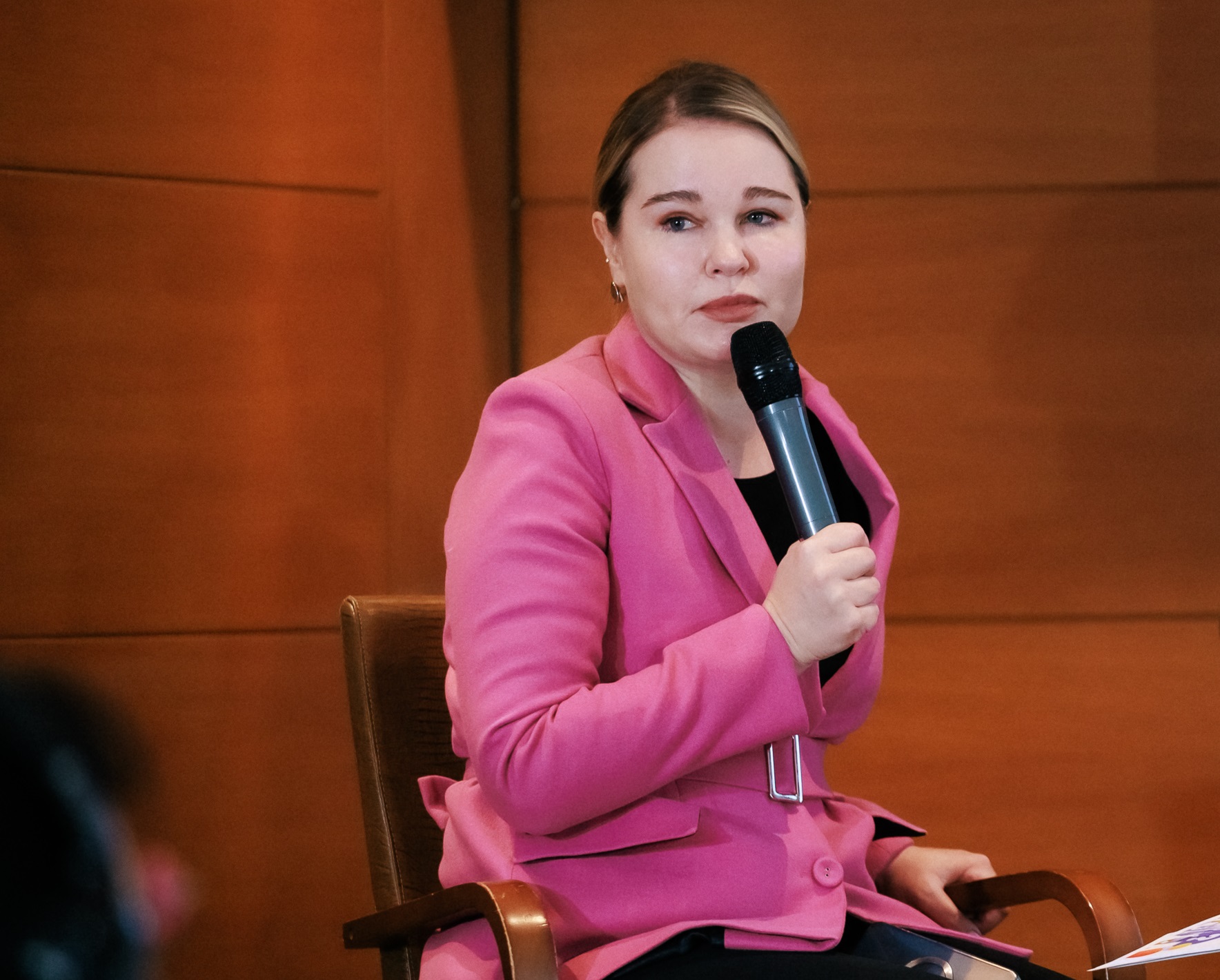
Alyona Getmanchuk, Director of the New Europe Center, adressed with opening remarks to the guests. During commenting the results of the opinion poll she stated:
“Ukrainians demonstrate that it is possible to be both grateful to international partners and disappointed by them at the same time. Over the course of a year, we’ve been recording a decrease in the trust level to all key foreign leaders except for Emmanuel Macron and Donald Trump”.
“The idea of Ukraine’s gradual accession to NATO is being reconsidered right before our eyes. It is seen now as an invitation for the whole of Ukraine within internationally recognized borders with the application of Article 5 for all of Ukraine except temporarily occupied territories. More than 70% of support for such a model is a “green light” from Ukrainian society for its implementation”.
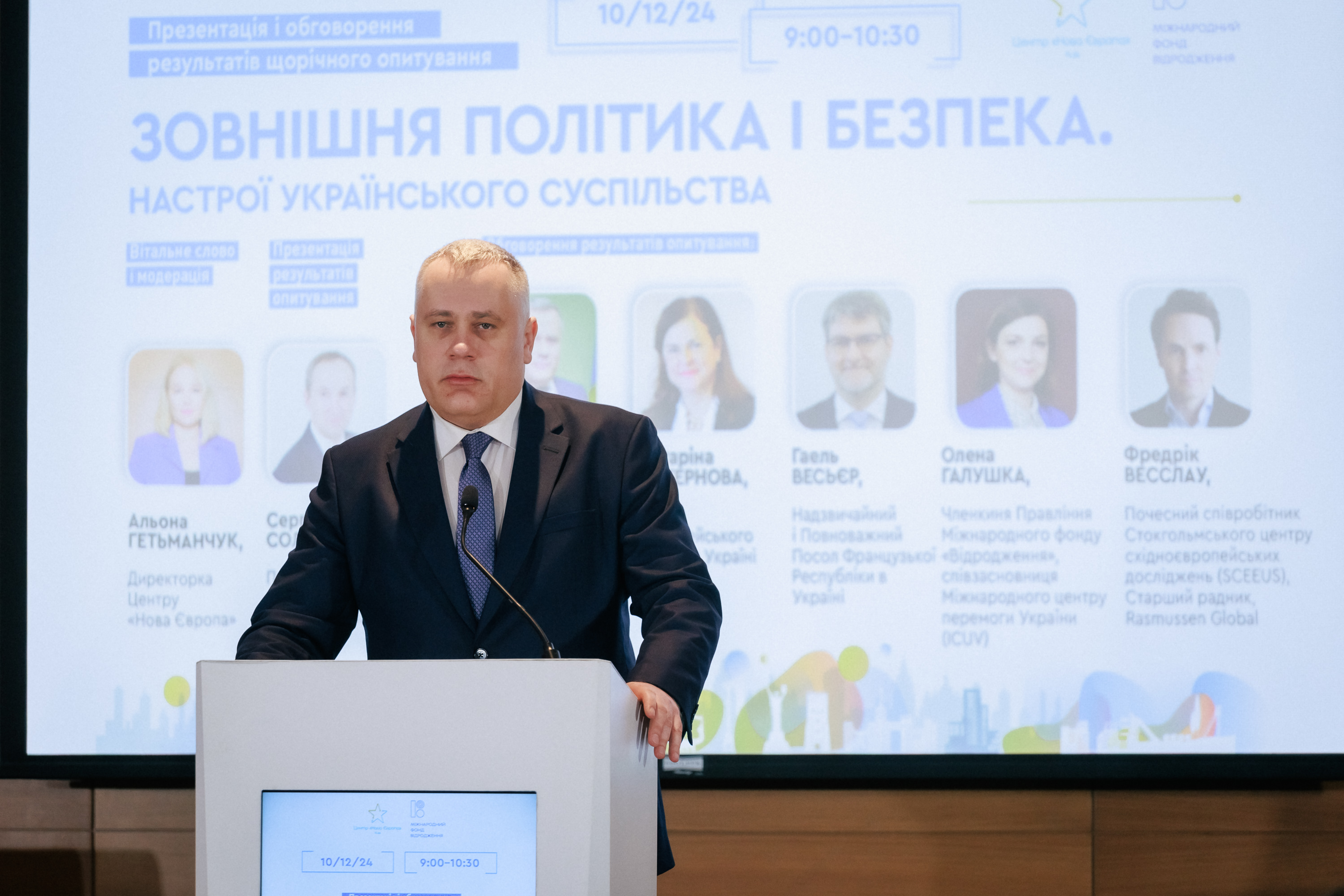
Ihor Zhovkva, Deputy Head of the Office of the President of Ukraine, Diplomatic Advisor to the President of Ukraine addressed the guests. He, in particular, stressed:
“Today’s poll highlights the most pressing issues. It is really important that the positions of the Government and citizens coincide. This is the unity that will help us win.
I am very pleased that the Victory Plan has been put to the public for consideration. This plan should make it easier for both us and our partners to achieve victory. The Victory Plan remains relevant for the President. The first point of this document is to invite Ukraine to join NATO. This is really the best, most optimal guarantee of security today. Therefore, we will continue to talk to absolutely all partners, to all 32 members of the Alliance about receiving an invitation to join the Alliance at this stage.
Since the issue of Ukraine’s membership in NATO remains out of reach, today we need appropriate guarantees of our security before we join NATO”.
Detailed messages of Ihor Zhovkva are here.
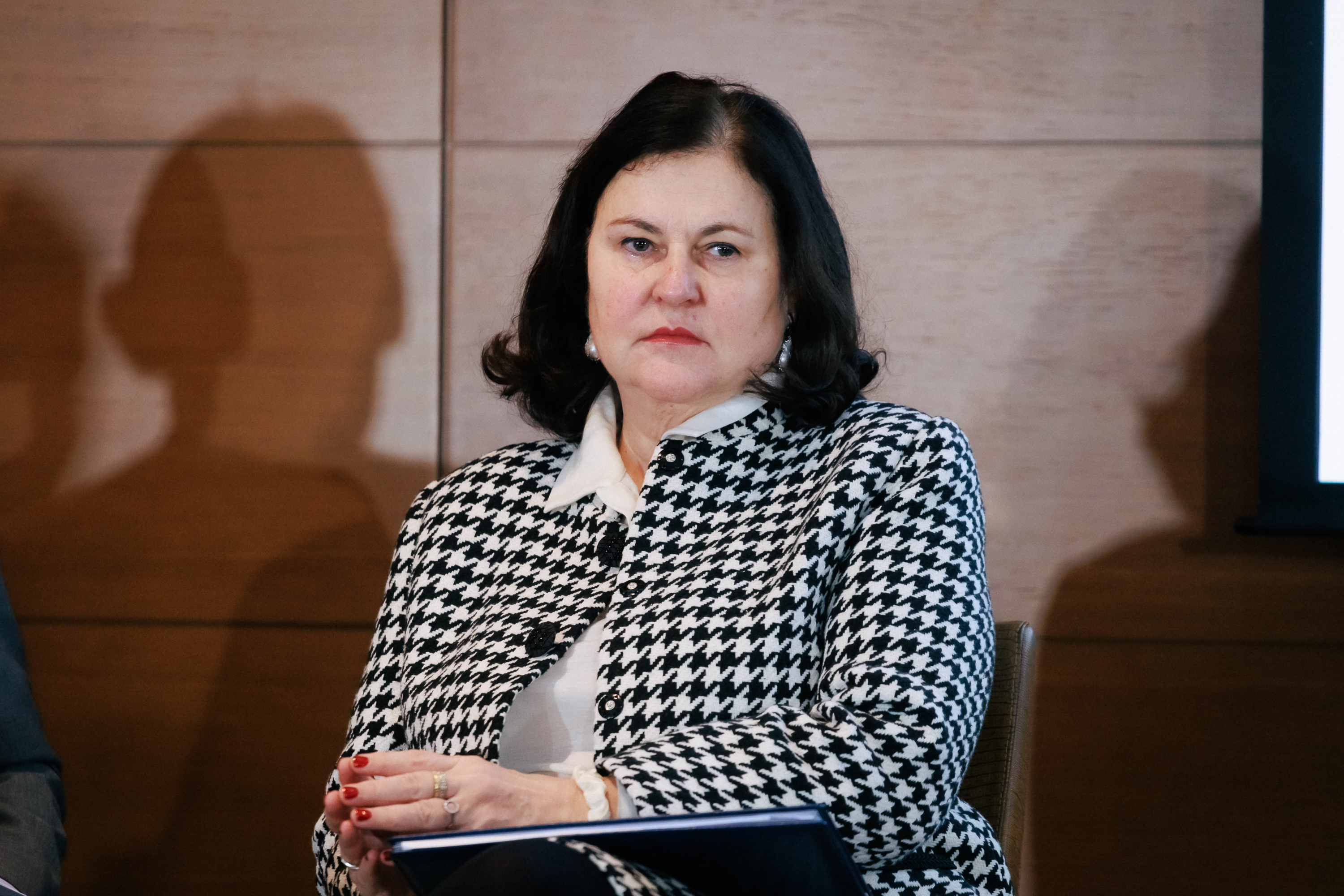
Katarina Maternova, Ambassador of the European Union to Ukraine, took part in the discussion of the results:
“I would like to come up with three reasons why the EU and Ursula von der Leyen are on top of this rating of institutional trust in your opinion poll. One is that they indeed represent hope. Already on Maidan there were European flags but then since Maidan there was always a little bit of a pause from the side of EU institutions. I remember the lengthy discussions over every word in Summit conclusions or association Council final declarations. And so I think the hope is what at this dark hour gives perspective and the new flag.
The second reason is that despite all odds, we are a big tanker that doesn’t move very fast. But we deliver. And we mobilized in February both in terms of the assistance and support, and also in terms of pushing ourselves on the enlargement agenda in quite creative ways. And I think that the credit goes to the institutions and the leaders among the member states that made it possible.
Reason number 3 is the work of the Ukrainians over the last 10 years: the work of the reformers, the push by the civil society, the legislative achievements of the various sessions of the Rada, and when the full-scale invasion came, the heroism and resilience that we have seen. So the EU responded: it’s tied together that we were able to do the so far delivery in reaction to what we have seen and experienced”.
Detailed messages of Katarina Maternova are here.
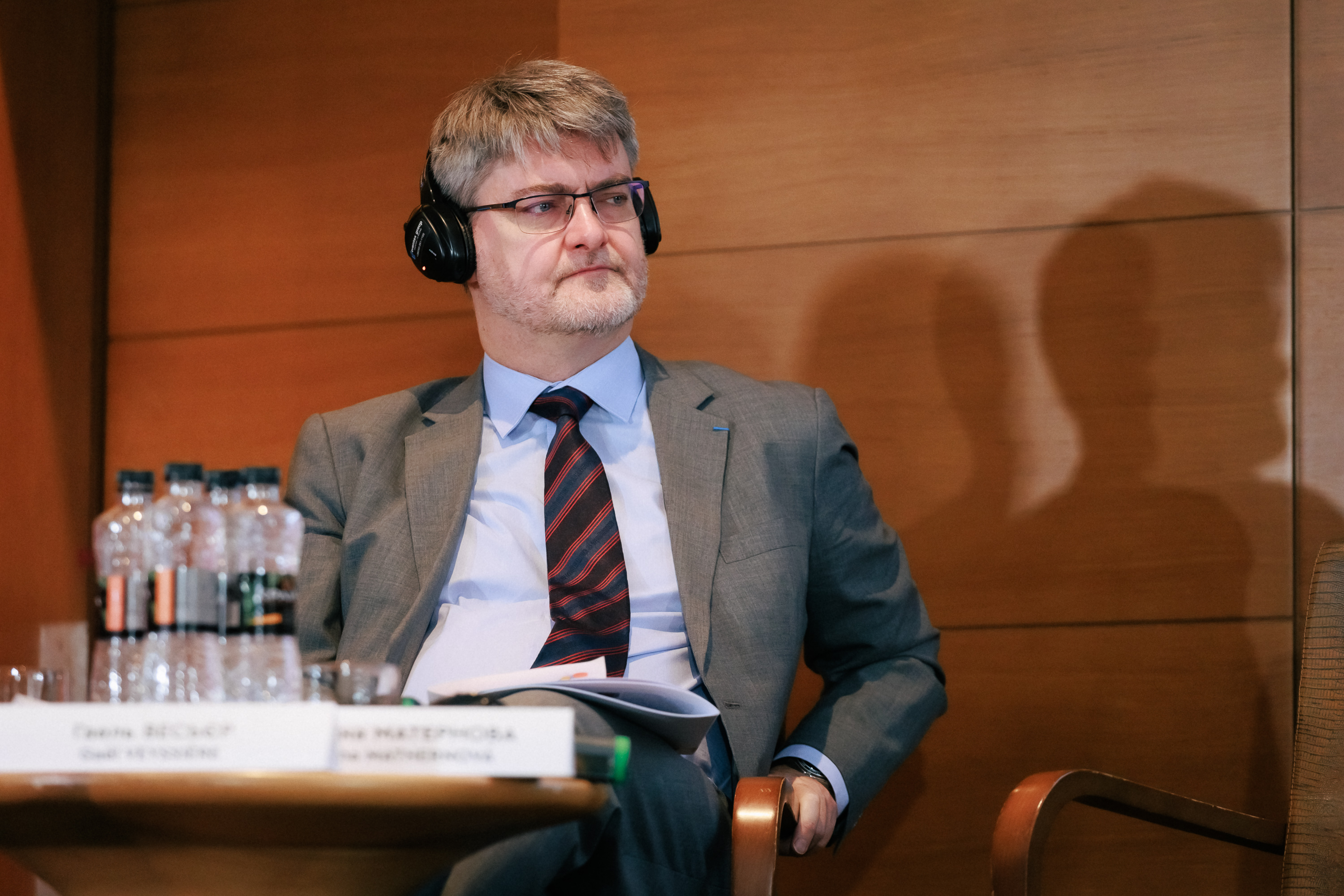
Gaël Veyssière, Ambassador Extraordinary and Plenipotentiary of the French Republic to Ukraine:
“I completely follow the logic that Ukraine would be safer entering into NATO, and that the war would be shorter and security of the continental Europe would be stronger when Ukraine would enter into NATO. Still, it’s a unanimity decision by the Washington Treaty.
When the time comes, if Ukraine asks us, we will be in a position to support them as much as we can and fully participate in a process that will lead to a just, long-lasting and sustainable peace. But the important thing is that it has to be initiated by Ukraine. Ukraine is the victim. It is up to Ukraine to decide when it can speak and on what basis, and we are here to support it”.
Detailed messages of Gaël Veyssière are here.
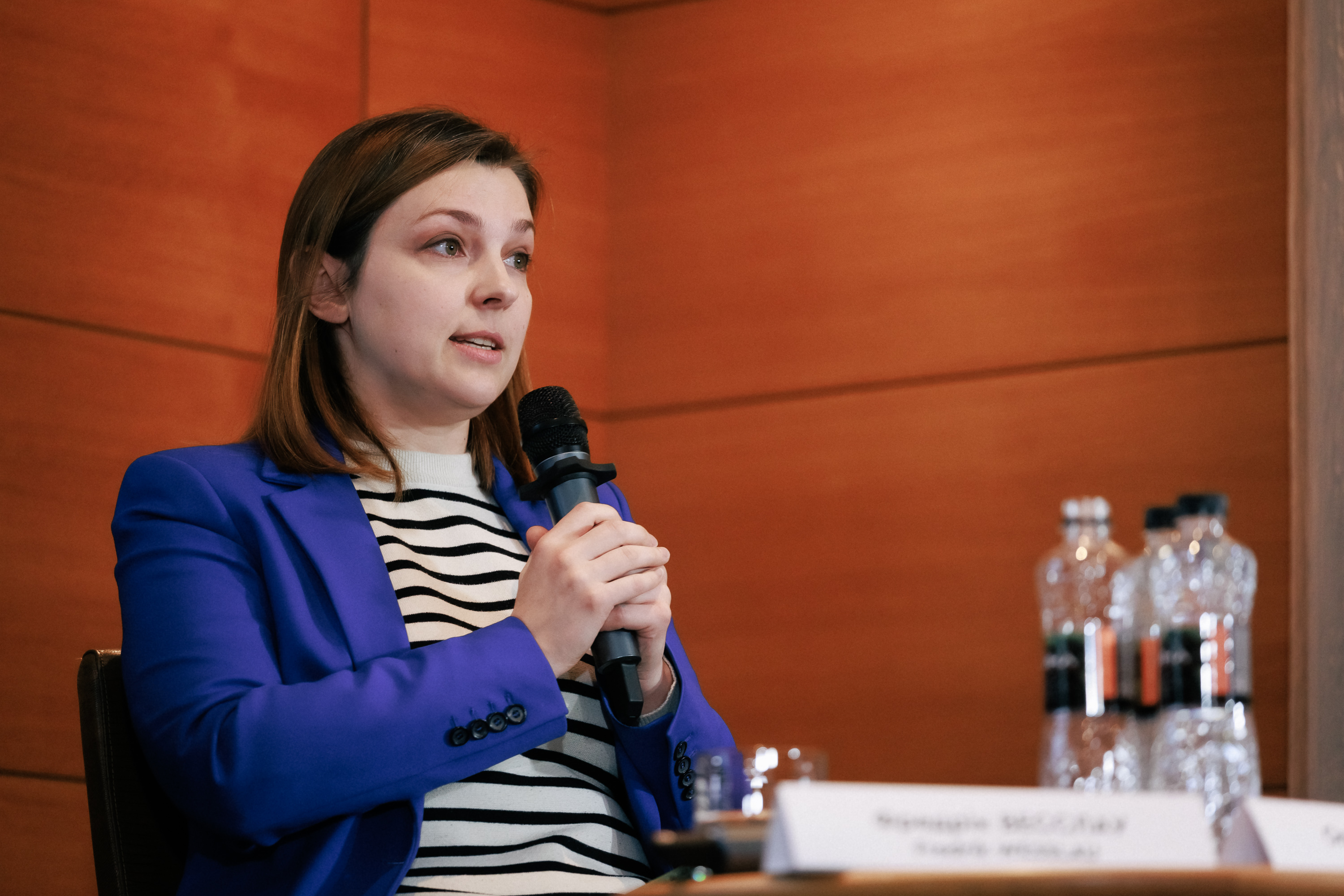
Olena Halushka, Member of the Board of the International Renaissance Foundation, co-founder of the International Center for Ukrainian Victory (ICUV), Member of the Board of ANTAC:
“The indicator of 63% of all the respondents who believe that Ukraine needs EU and US pressure to overcome corruption, though decreasing every year, is still quite high. So, it is necessary to clearly distinguish who is the driver of societal changes. After all, our partners often believe that the fight against corruption, reforms in the sphere of the rule of law, are imposed on Ukraine from outside, and we carry them out here, because that is what the EU, the IMF or other partners are asking. This is not the case, because in 2013, Ukrainians clearly communicated their subjectivity in this process, going to the Maidan for justice, fairness under the flags of the European Union. That is, European integration for Ukrainians is not the goal in itself, it is a tool for achieving all the necessary reforms in Ukraine.”
Detailed messages of Olena Halushka are here.
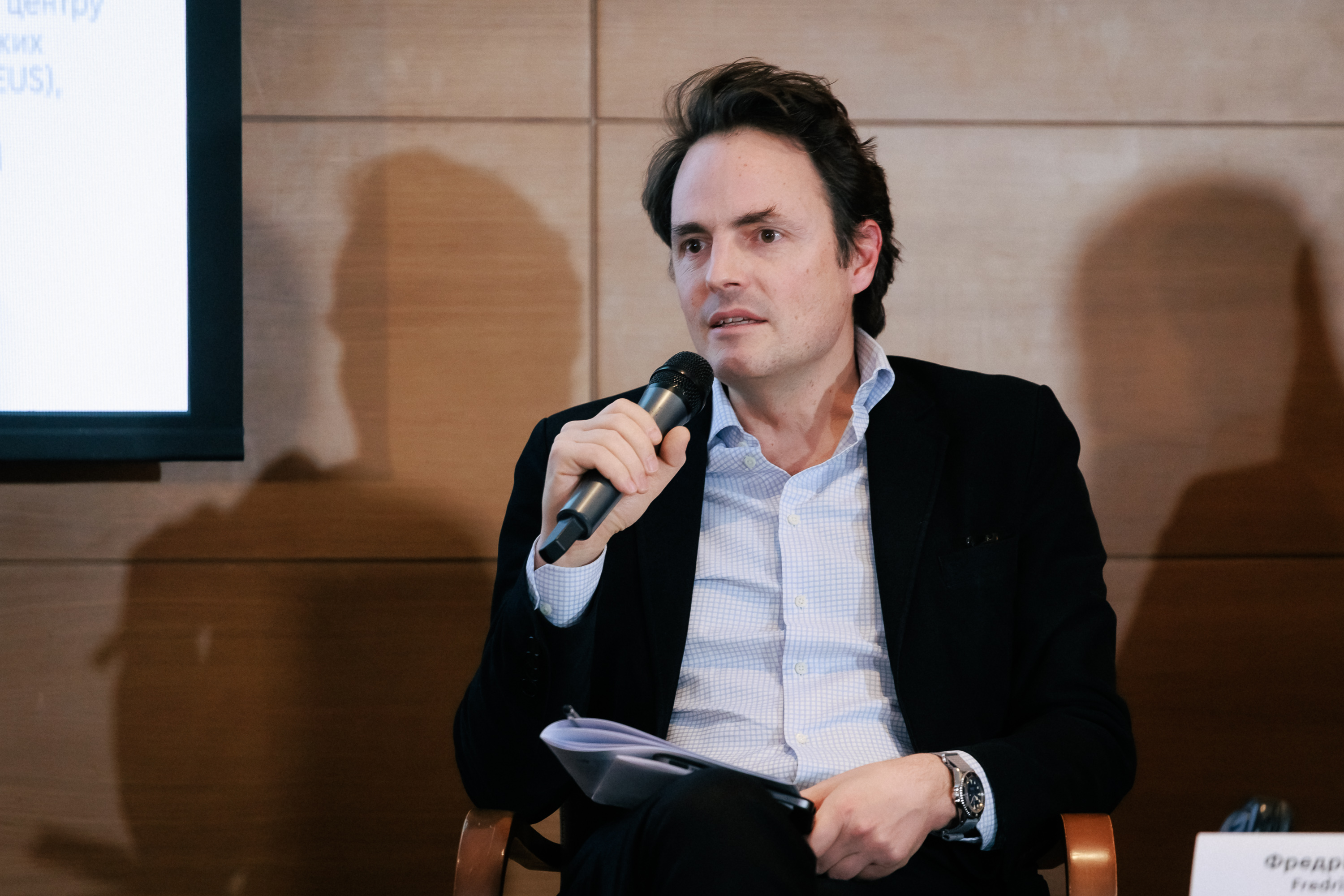
Fredrik Wesslau, Distinguished Policy Fellow, Stockholm Centre for Eastern European Studies (SCEEUS), Senior Adviser, Rasmussen Global:
“What really struck me with this poll is a mix of optimism and pessimism, but I would really say it’s a mix of realism and hope. It’s quite impressive how, for the most part, the Ukrainians have a very solid understanding of the situation at hand and a very good intuition about what’s doable and not doable and what’s needed as well”.
Detailed messages of Fredrik Wesslau are here.
Photo report is here.
The record in English is here.
The record in Ukrainian is here.
Let us remind that this is the third opinion poll initiated by the NEC. The results of the first opinion poll can be found here, the second – here.
The presentation of the poll results is organized within the framework of a project supported by the International Renaissance Foundation. The poll was conducted by the research agency Info Sapiens at the request of the New Europe Center.



